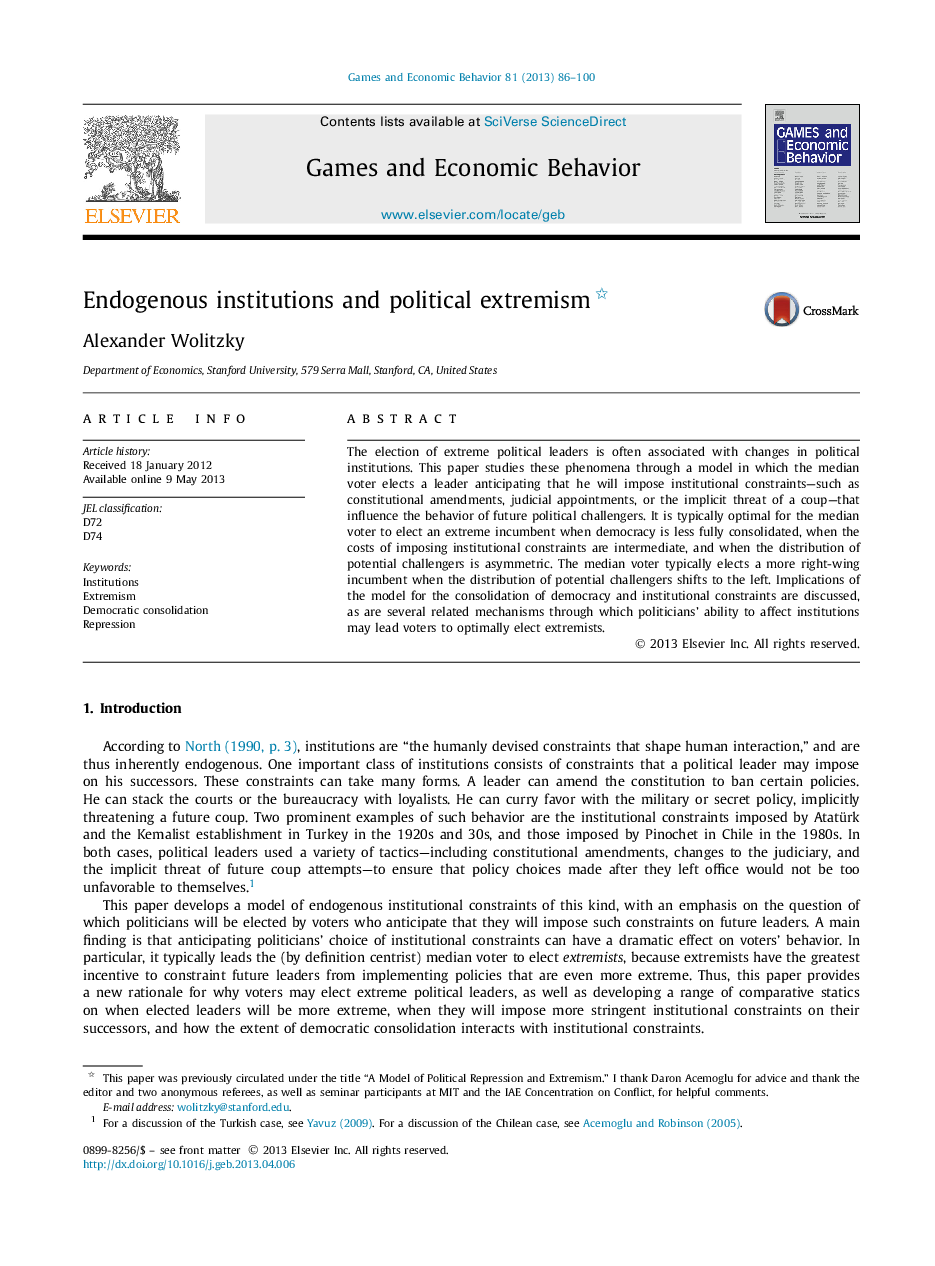| Article ID | Journal | Published Year | Pages | File Type |
|---|---|---|---|---|
| 5071939 | Games and Economic Behavior | 2013 | 15 Pages |
Abstract
The election of extreme political leaders is often associated with changes in political institutions. This paper studies these phenomena through a model in which the median voter elects a leader anticipating that he will impose institutional constraints-such as constitutional amendments, judicial appointments, or the implicit threat of a coup-that influence the behavior of future political challengers. It is typically optimal for the median voter to elect an extreme incumbent when democracy is less fully consolidated, when the costs of imposing institutional constraints are intermediate, and when the distribution of potential challengers is asymmetric. The median voter typically elects a more right-wing incumbent when the distribution of potential challengers shifts to the left. Implications of the model for the consolidation of democracy and institutional constraints are discussed, as are several related mechanisms through which politiciansʼ ability to affect institutions may lead voters to optimally elect extremists.
Related Topics
Social Sciences and Humanities
Economics, Econometrics and Finance
Economics and Econometrics
Authors
Alexander Wolitzky,
